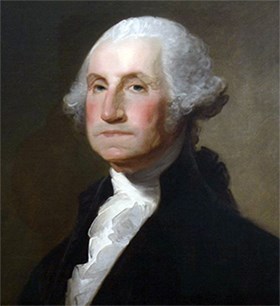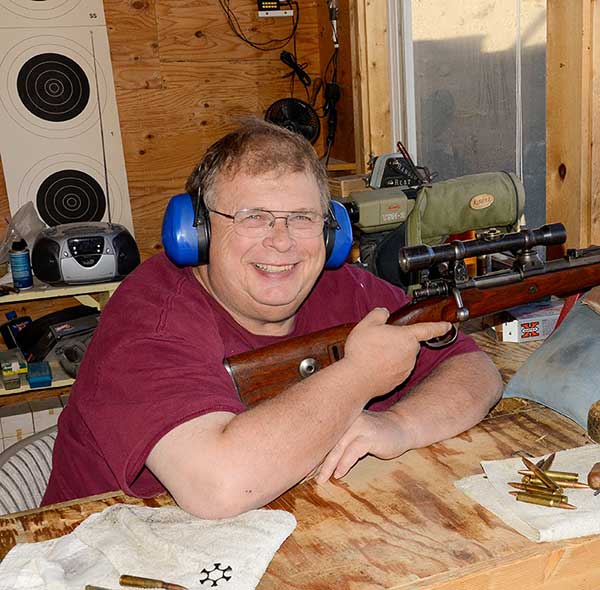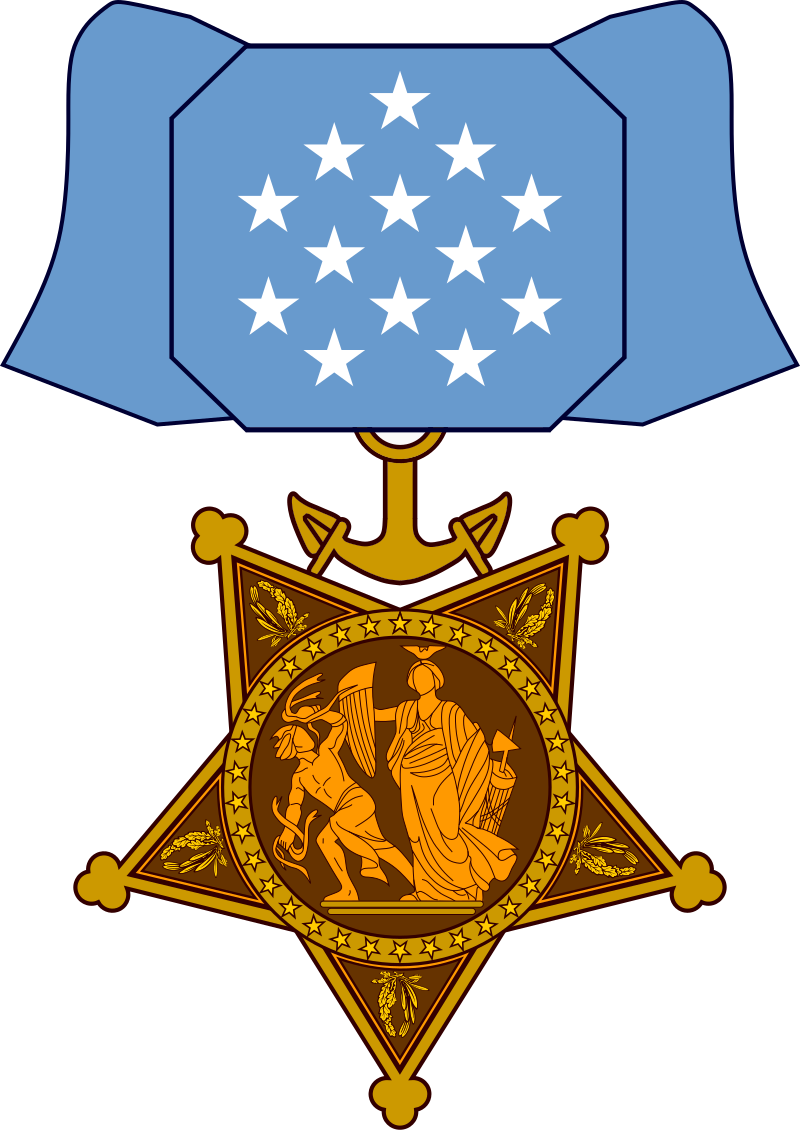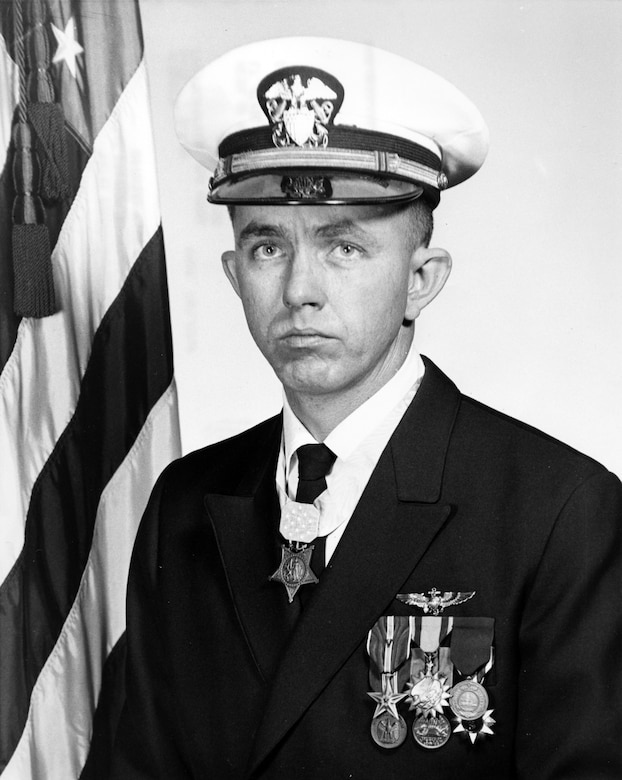
Category: Manly Stuff

|
Joe Ronnie Hooper
|
|
|---|---|
| Born | August 8, 1938 Piedmont, South Carolina, U.S. |
| Died | May 6, 1979 (aged 40) Louisville, Kentucky, U.S. |
| Buried | |
| Allegiance | United States of America |
| Service/ |
|
| Years of service | 1956–1959 (USN) 1960–1978 (USA) |
| Rank | |
| Unit | |
| Battles/wars | Vietnam War (WIA) |
| Awards | |
Joe Ronnie Hooper (August 8, 1938 – May 6, 1979) was an American who served in both the United States Navy and United States Army where he finished his career there as a captain. He earned the Medal of Honor while serving as an army staff sergeant on February 21, 1968, during the Vietnam War. He was one of the most decorated U.S. soldiers of the war and was wounded in action eight times.
Early life and education[edit]
Hooper was born on August 8, 1938, in Piedmont, South Carolina. His family moved when he was a child to Moses Lake, Washington where he attended Moses Lake High School.
Career[edit]
Hooper enlisted in the United States Navy in December 1956. After graduation from boot camp at San Diego, California he served as an Airman aboard USS Wasp and USS Hancock. He was honorably discharged in July 1959, shortly after being advanced to petty officer third class.
U.S. Army
Hooper enlisted in the United States Army in May 1960 as a private first class, and attended Basic Training at Fort Ord, California. After graduation, he volunteered for Airborne School at Fort Benning, Georgia, then was assigned to Company C, 1st Airborne Battle Group, 325th Infantry,[1] 82nd Airborne Division at Fort Bragg, North Carolina, and was promoted to corporal during this assignment.
He served a tour of duty in South Korea with the 20th Infantry in October 1961, and shortly after arriving, he was promoted to sergeant and was made a squad leader. He left Korea in November 1963, and was assigned to the 2nd Armored Division at Fort Hood, Texas for a year as a squad leader, then became a squad leader with Company D, 2nd Battalion (Airborne), 502nd Infantry, 101st Airborne Division at Fort Campbell, Kentucky.
He was promoted to staff sergeant in September 1966, and volunteered for service in South Vietnam. Instead, he was assigned as a platoon sergeant in Panama with the 3rd Battalion (Airborne), 508th Infantry, first with HQ Company and later with Company B.
Hooper could not stay out of trouble, and suffered several Article 15 hearings, then was reduced to the rank of corporal in July 1967. He was promoted once again to sergeant in October 1967, and was assigned to Company D, 2nd Battalion (Airborne), 501st Airborne Infantry, 101st Airborne Division at Fort Campbell, and deployed with the division to South Vietnam in December as a squad leader.
During his tour of duty with Delta Company (Delta Raiders), 2nd Battalion (Airborne), 501st Airborne Infantry, he was recommended for the Medal of Honor for his heroic actions on February 21, 1968, during the Battle of Huế.[2]
He returned from South Vietnam, and was discharged in June 1968. He re-enlisted in the Army the following September, and served as a public relations specialist. On March 7, 1969, he was presented the Medal of Honor by President Richard Nixon during a ceremony in the White House. From July 1969 to August 1970, he served as a platoon sergeant with the 3rd Battalion, 5th Infantry in Panama.
He managed to finagle a second tour in South Vietnam; from April to June 1970, he served as a pathfinder with the 101st Aviation Group, 101st Airborne Division (Airmobile), and from June to December 1970, he served as a platoon sergeant with Company A, 2nd Battalion, 327th Infantry, 101st Airborne Division (Airmobile).
In December 1970, he received a direct commission to second lieutenant and served as a platoon leader with Company A, 2nd Battalion, 501st Infantry, 101st Airborne Division (Airmobile) until April 1971.
Upon his return to the United States, he attended the Infantry Officer Basic Course at Fort Benning, and was assigned as an instructor at Fort Polk, Louisiana. Despite wanting to serve twenty years in the Army, Hooper was made to retire in February 1974 as a first lieutenant, mainly because he only completed a handful of college courses beyond his GED.
As soon as he was released from active duty, he joined a unit of the Army Reserve’s 12th Special Forces Group (Airborne) in Washington as a Company Executive Officer. In February 1976, he transferred to the 104th Division (Training), also based in Washington. He was promoted to captain in March 1977. He attended drills intermittently, and was separated from the service in September 1978.
For his service in Vietnam, the U.S. Army also awarded Hooper two Silver Stars, six Bronze Stars, eight Purple Hearts, the Presidential Unit Citation, the Vietnam Service Medal with six campaign stars, and the Combat Infantryman Badge.
He is credited with 115 enemy killed in ground combat, 22 of which occurred on February 21, 1968. He became one of the most-decorated soldiers in the Vietnam War,[2] and was one of three soldiers wounded in action eight times in the war.
Later life and death
According to rumors, he was distressed by the anti-war politics of the time, and compensated with excessive drinking which contributed to his death.[3] He died of a cerebral hemorrhage in Louisville, Kentucky on May 6, 1979, at the age of 40.
Hooper is buried at Arlington National Cemetery in Section 46, adjacent to the Memorial Amphitheater.
Military awards
Hooper’s military decorations and awards include:
 |
|||
| Combat Infantryman Badge | |||||||||||
| Medal of Honor | Silver Star w/ 1 bronze oak leaf cluster |
||||||||||
| Bronze Star w/ Valor device and 1 silver oak leaf cluster |
Purple Heart w/ 1 silver and 2 bronze oak leaf clusters |
Air Medal w/ 4 bronze oak leaf clusters |
|||||||||
| Army Commendation Medal w/ Valor device and 1 bronze oak leaf cluster |
Army Good Conduct Medal w/ 3 bronze Good conduct loops |
Navy Good Conduct Medal | |||||||||
| National Defense Service Medal | Armed Forces Expeditionary Medal | Vietnam Service Medal w/ 1 silver and 1 bronze campaign stars |
|||||||||
| Vietnam Cross of Gallantry w/ Palm |
Republic of Vietnam Campaign Medal | Navy Pistol Marksmanship Ribbon w/ “E” Device |
|||||||||
| Army Presidential Unit Citation | ||
| Vietnam Presidential Unit Citation | Republic of Vietnam Gallantry Cross Unit Citation | Republic of Vietnam Civil Actions Unit Citation |
 |
 |
 |
| Master Parachutist Badge | Expert Marksmanship Badge w/ 1 weapon bar |
Vietnam Parachutist Badge |
Medal of Honor citation
Medal of Honor
{{quote|Rank and organization: Staff Sergeant, U.S. Army, Company D, 2d Battalion (Airborne), 501st Infantry, 101st Airborne Division. Place and date: Near Huế, Republic of Vietnam, February 21, 1968. Entered service at: Los Angeles, Calif. Born: August 8, 1938, Piedmont, S.C.
For conspicuous gallantry and intrepidity in action at the risk of his life above and beyond the call of duty. Staff Sergeant (then Sgt.) Hooper, U.S. Army, distinguished himself while serving as squad leader with Company D. Company D was assaulting a heavily defended enemy position along a river bank when it encountered a withering hail of fire from rockets, machine guns and automatic weapons. S/Sgt. Hooper rallied several men and stormed across the river, overrunning several bunkers on the opposite shore.
Thus inspired, the rest of the company moved to the attack. With utter disregard for his own safety, he moved out under the intense fire again and pulled back the wounded, moving them to safety. During this act S/Sgt. Hooper was seriously wounded, but he refused medical aid and returned to his men. With the relentless enemy fire disrupting the attack, he single-handedly stormed 3 enemy bunkers, destroying them with hand grenade and rifle fire, and shot 2 enemy soldiers who had attacked and wounded the Chaplain. Leading his men forward in a sweep of the area, S/Sgt. Hooper destroyed 3 buildings housing enemy riflemen.
At this point he was attacked by a North Vietnamese officer whom he fatally wounded with his bayonet. Finding his men under heavy fire from a house to the front, he proceeded alone to the building, killing its occupants with rifle fire and grenades.
By now his initial body wound had been compounded by grenade fragments, yet despite the multiple wounds and loss of blood, he continued to lead his men against the intense enemy fire. As his squad reached the final line of enemy resistance, it received devastating fire from 4 bunkers in line on its left flank. S/Sgt. Hooper gathered several hand grenades and raced down a small trench which ran the length of the bunker line, tossing grenades into each bunker as he passed by, killing all but 2 of the occupants.
With these positions destroyed, he concentrated on the last bunkers facing his men, destroying the first with an incendiary grenade and neutralizing 2 more by rifle fire. He then raced across an open field, still under enemy fire, to rescue a wounded man who was trapped in a trench.
Upon reaching the man, he was faced by an armed enemy soldier whom he killed with a pistol. Moving his comrade to safety and returning to his men, he neutralized the final pocket of enemy resistance by fatally wounding 3 North Vietnamese officers with rifle fire. S/Sgt. Hooper then established a final line and reorganized his men, not accepting treatment until this was accomplished and not consenting to evacuation until the following morning.
His supreme valor, inspiring leadership and heroic self-sacrifice were directly responsible for the company’s success and provided a lasting example in personal courage for every man on the field. S/Sgt. Hooper’s actions were in keeping with the highest traditions of the military service and reflect great credit upon himself and the U.S. Army.
———————————————————————————— What a Stud!!! Grumpy

 The Medal of Honor is instantly recognized as our nation’s highest award for heroism. The familiar words, “Above and beyond the call of duty” are etched into every child’s memory as dreams of battlefield gallantry flicker across their thoughts and deeds while engaged in playground antics. Few know, however, that while the Medal of Honor was instituted in March of 1863, we had other ways of recognizing gallantry that date back to the American Revolution.
The Medal of Honor is instantly recognized as our nation’s highest award for heroism. The familiar words, “Above and beyond the call of duty” are etched into every child’s memory as dreams of battlefield gallantry flicker across their thoughts and deeds while engaged in playground antics. Few know, however, that while the Medal of Honor was instituted in March of 1863, we had other ways of recognizing gallantry that date back to the American Revolution.
In August of 1782, Gen. Washington wrote: “The General … directs that whenever any singularly meritorious action is performed, the author of it shall be permitted to wear on his facings over the left breast, the figure of a heart in purple cloth, or silk, edged with narrow lace or binding. Not only instances of unusual gallantry, but also of extraordinary fidelity and essential service in any way shall meet with a due reward.” From that directive, we know of three “Purple Hearts for Military Merit” that were awarded to soldiers of the Continental Line and then the award fell into disuse and was eventually revived in 1932 as an award for being wounded in combat.
At the close of the American Revolution in 1781, Congress authorized the purchase and presentation of 15 swords to be made in Paris and inscribed with the thanks of Congress to the recipient—who had been nominated by Gen. Washington for superior service and gallantry. Eight of these swords are known to have survived.
During the War of 1812, Congress similarly presented 27 swords to those who had displayed gallantry at the Battle of Lake Erie. Eight are known to still exist today.
In another example, which is the only time Congress has presented an actual firearm to a soldier for heroism, at the Battle of Plattsburgh, N.Y., in 1814, 17 young men enlisted to help defend the city and received inscribed Hall’s rifles with personalized plaques that highlighted their service. Ten of these are accounted for today.
In March of 1863, six Medals of Honor were awarded at the War Dept. to the surviving soldiers who had taken part in the great locomotive chase later immortalized by Buster Keaton in the 1926 film “The General.” Inscriptions on the back read, “The Congress to …” and then the name, rank and location of the event were engraved upon the first medals given for valor in our military history.
Today, the Medal of Honor is our nation’s most-revered symbol of courage and gallantry. More than 3,000 have been earned since the Civil War, and those who survive to receive the award are held in high esteem for the rest of their lives.
Through the generosity of Norm Flayderman, Jack Lewis and Marvin Applewhite, the NRA National Firearms Museum has four original Medals of Honor in the collection. They are currently on exhibit, along with other symbols of valor that predate the Civil War.
Through the generosity of John McMurray, Craig Bell and Alan Boyd, of the American Society of Arms Collectors, the National Firearms Museum is pleased to announce the opening of Symbols of Valor, a collection of two of the Revolution’s presentation swords, two Lake Erie swords, one Plattsburgh Hall’s rifle and five Medals of Honor.
The exhibit is displayed with an original oil painting by Gilbert and Jane Stuart of George Washington, recently donated by the Estate of Doc Thurston of Charlotte, N.C.
———————————————————————————— In all my time in the Army. I have only met and promptly saluted one MOH man. Which should tell you that they are the elite of the elite of our Warriors! Grumpy

This image of a smiling Mike Venturino has gotten lots of
attention in the wake of his passing. It’s how I hope we
all remember him.
The passing of American Handgunner and GUNS Magazine’s Mike “Duke” Venturino hit us, his colleagues and admirers, hard.
I cannot claim to have known him as well as I would have liked, but I knew him well enough to recognize a genuinely nice guy. We first met face-to-face on an airplane heading to a SHOT Show many years ago.
My flight stopped somewhere, and he came aboard, taking the seat next to me. There were the usual introductions, and for the next couple of hours, we talked about guns, gear and some of the folks we mutually knew.
There were plenty of chuckles a few shakes of heads, and maybe even an eye roll. It is surprising how fast about three hours can pass when the conversation is fun, and you’re talking to a new friend.
Duke was a writer’s writer; a fellow dedicated to detail and entertaining his readers as well as educating them. He attended Marshall University, where he studied journalism, which one could tell in an instant by the way he wrote, especially if you also studied journalism (University of Washington) some decades back in the 20th Century.
I learned of his passing at about 3 a.m. on a Monday morning and spent the next several hours finding out all I could before writing about it at TheGunMag.com, where being editor-in-chief sometimes includes the unpleasant job of writing about someone who has, as they say, “left the range.”
In all the years I’ve been writing about firearms and reading what others wrote — and the reactions from readers — I cannot recall a single person ever disparaging Mike Venturino.
More than 35 years ago, one of my long-gone shooting/hunting buddies remarked about having read something he wrote with a connection to the gun-related thing we were discussing. “Well, Venturino said …” This seems to have been stated over the years by more people than I can count. Translation: Mike’s observations were the gold standard.
Safe in Seattle?
Back in 2020, I was working on a column about the events of the Old West in 1876, which included a mention of the Custer debacle at Little Bighorn. I was interested in the ammunition 7th Cavalry troopers used in their Colt SAA revolvers, so I reached out to Venturino, who was the only guy on the planet I figured would have the information. We were Facebook “friends” by then, so I fired off a message.
Two hours later, I got a reply. Duke was matter-of-fact, explaining they used “standard .45 Colt rounds. They were loaded with 30 grains (of) black powder and 250-grain bullets,” to which he added, “I have a photo of an original box that belongs to a friend. It is dated January 1874 and has those specs on the label.” Why didn’t that surprise me? He was a living encyclopedia of gun stuff.
And then he added a comment, mindful of the insanity of the protests going on at the time in Seattle where what the ex-mayor flippantly — and ignorantly — described as the “summer of love” was unfolding in broken glass, vandalized police vehicles, some looting, property damage and a couple of murders following the death of George Floyd at the hands of Minneapolis police.
“I hope you are surviving all the crap over your way,” he wrote, and I knew he meant it. I still consider it a very thoughtful thing to say.
A couple of years later, I was researching another piece, doing some background, when something triggered my recollection of a teacher in junior high school telling me about how he and some buddies had allegedly once drilled out a .44-caliber bullet and inserted an inverted .22 Short case, presumably with the powder intact, to make an “exploding” projectile. I have no idea whether he was telling a tale, but I remembered it more than 50 years later. It was and remains one of the all-time stupidest things I’ve ever heard of. Ultimately, this moronic stunt had nothing to do with the story I was working on, but I sent Duke a note anyway, asking if he’d ever heard of such a harebrained stunt.
Kids … and adults … do NOT try this at home or anywhere else. Run, don’t walk, away from anybody who suggests giving this a try.
“I have heard of that,” Mike replied about four hours later, “but I’m like you. It’s harebrained!”
About 18 months ago, I inquired about what kind of computer he used, as I was prepping to replace my aging desktop. I still get a chuckle from his reply: “I have no idea what it actually is except it uses Apple stuff. I just told a local guy that I needed a new computer, and he came and set it up.”
Mike and I obviously had more in common than just guns!
Still, our exchanges stuck mainly to guns. Last July, I sent a message to tell him how much I enjoyed a story he did on snake loads. At the time, I had a 25-pound bag of tiny lead shot I planned to bring over last summer if I had a chance to get to Montana. I never got to make that trip, and now it is too late. The moral: If you want to do something for a pal, do it. Next year may be too late.
‘They Don’t Make ‘Em…’
People like Mike Venturino happen once in a great while, possibly once in anyone’s lifetime — if even that frequently. Guys like him are very rare indeed and the best thing one journalist can say about another is this: “I shall miss his byline.”
He authored books and a few thousand stories during his career of about 50 years. That was one heck of a lifetime. I will think good thoughts about Duke at the campfire.
On 19 June 1968, LT JG Clyde Lassen flew his UH-2A Seasprite deep inside North Vietnam at night and rescued two downed naval aviators despite facing anti-aircraft fire, dense tree cover and limited illumination. When he completed the mission by safely landing on USS Jouett, he only had 5 minutes of fuel left. Lassen was the only Navy helicopter pilot awarded the Medal of Honor during the Vietnam War.







In Yemen, Muslim community honors one of last remaining Jews with respectful burial
Yahya Ben Youssef, one of last 6 Jews living in Yemen, passed away at over 100 years old in village north of Sanaa; his Muslim neighbors volunteer to ensure he received honorable Jewish sendoff

The Queen’s Truncheon is a ceremonial staff carried by the Royal Gurkha Rifles that serves as the equivalent of and is carried as the Colour. It is made of bronze and silver. The top represents the minaret of Delhi Palace with three Gurkhas standing on it supporting the Queen’s crown above their heads.
The minaret contains a pair of crossed kukris and carries the inscription “Main Picqet Hindoo Rao’s House, Delhi 1857”. The Truncheon is a unique emblem upon which recruits swear allegiance to the Regiment and the Crown.[1]
During the Indian Rebellion of 1857, the 8th (Sirmoor) Local Battalion made a particularly notable contribution. During the four-month Siege of Delhi, they defended Hindu Rao‘s house, losing 327 out of 490 men. During this action they fought side-by-side with the 60th Rifles and a strong bond developed.[2][3]
After the rebellion the 60th Rifles pressed for the Sirmoor Battalion to become a rifle regiment. This honour was granted then next year (1858) when the battalion was renamed the Sirmoor Rifle Regiment and awarded a third colour.[4]
In 1863 Queen Victoria presented the regiment with the Queen’s Truncheon, devised by Charles Reid,[5] as a replacement for the colours that rifle regiments do not usually have.[6]
The Sirmoor Rifle Regiment eventually became the 2nd King Edward VII’s Own Gurkha Rifles (The Sirmoor Rifles), retaining possession of the Truncheon until 1994, when it was amalgamated with the other three British Gurkha regiments as The Royal Gurkha Rifles.
The new regiment took possession of the Truncheon on permanent loan from the 2nd Gurkhas, and maintains the tradition of using it in place of colours


